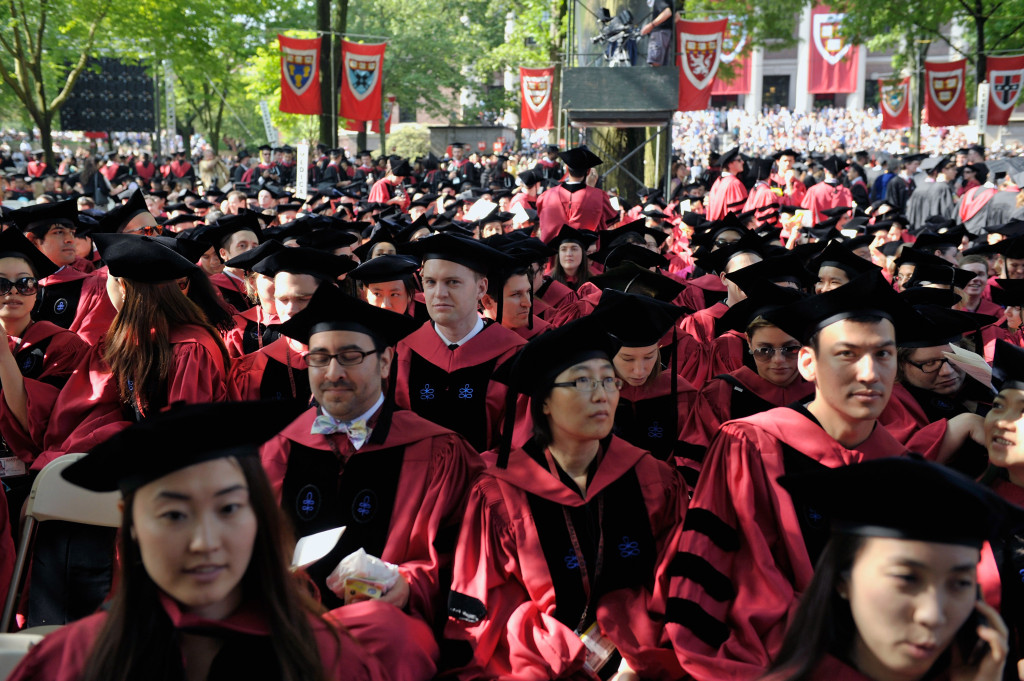“Look beneath the façade of seamless well-adjustment, and what you often find are toxic levels of fear, anxiety, and depression, of emptiness and aimlessness and isolation.”
 That riveting line is from an essay in the New Republic, ostensibly about the young people in American colleges adapting to a dead culture. Of course, it applies even more to the vast majority of adults here as well.
That riveting line is from an essay in the New Republic, ostensibly about the young people in American colleges adapting to a dead culture. Of course, it applies even more to the vast majority of adults here as well.
The surprisingly non-academic title of the widely read piece is “Don’t Send Your Kid to the Ivy League—The Nations Top Colleges Are Turning Our Kids Into Zombies.”
The article is by William Deresiewicz, who spent 24 years in the Ivy League. It took him that long he said, “to start to think about what this system does to kids and how they can escape from it, what it does to our society and how we can dismantle it.”
Even at that, media elites believe that that Deresiewicz significantly overstates the amount of moral decay at elite universities. On the contrary, he significantly understates the soul rot at the core of not just at the nation’s top colleges, but in the culture itself.
College, for those fortunate enough to attend, was once a time of freedom to discover oneself and form a philosophy of life. In other words, colleges used to offer the opportunity for young people to engage, for a few years, in the same essential activity that philosophers engage in for a lifetime. So it should come as no surprise that since this society has no place and makes no space for philosophers outside of the ‘professional philosophy’ of academia, its young people should be so lost.
College these days is mostly a place of social and economic conformity. Its ‘diversity’ ranges between finishing schools for the elites, or musical chairs for the best jobs for the rest.
But the deeper challenge is reflected in the statement by a college girl who said that attending one of the elite universities was “stifling to the parts of yourself you’d call a soul.” That remark is disturbing on many levels—not least of which is speak of soul in terms of ‘parts of yourself.’
Colleges, especially elite colleges, reflect and enshrine the values of society; they don’t determine them. How parents and teachers educate children from the earliest age—the implicit and unexamined values and norms with which they enculturate the young—is the first factor. And the entire system of education, indeed the very meaning of education and a good life, is now at issue.
“Learning how to think is only the beginning,” Deresiewicz proclaims. “There’s something in particular you need to think about: building a self.” Conflating and confusing the matter even further, he says, “It is only through the act of establishing communication between the mind and the heart, the mind and experience, that you become an individual, a unique being—a soul.”
Certainly it’s essential to establish communication between mind and heart, and between mind and experience. But such self-knowing does not ‘build a self,’ which is one of the most absurd phrases I’ve heard in some time.
In fact, building a self and nurturing a soul are antithetical propositions. In fact, this culture and its colleges, Ivy League on down, is very  good at ‘building a self.’ But it’s also very good at sucking the souls out of children at a younger and younger age.
good at ‘building a self.’ But it’s also very good at sucking the souls out of children at a younger and younger age.
What can be done? When a people and culture perish, there is no choice. The people who are still inwardly alive have to create a new culture from the ashes of the old. To do so requires that we understand what we mean by self and soul, and what right relationship to society is.
The whole business of ‘Higher Self’ imported from the East, and the self as synonymous with spirit or soul, is philosophically and linguistically confused and misleading. The self is an infinite regression of the illusion of separateness and permanence.
Even so, you know something is in the air when a leading atheist writes a book entitled, “Waking Up, A Guide to Spirituality Without Religion.”
In the book, Sam Harris echoes what I’ve been saying in this column for many years: “The sense that we are unified subjects is a fiction, produced by a multitude of separate processes and structures of which we are not aware and over which we exert no conscious control.”
So much for ‘building a self.’ Indeed, the basic requirement for right living is not to ‘build a self,’ but to negate the self.
As Harris puts it, “the claim that we can experience consciousness without a conventional sense of self–that there is no rider on the horse—seems to be on firm ground neurologically. Whatever causes the brain to produce the false notion that there is a thinker living somewhere inside the head, it makes sense that it could stop doing this.” Yes, but how?
There is a saying that goes, “the human mind is a wandering mind, and a wandering mind is an unhappy mind.” But in asking ‘how’ to quiet the mind we are asking for a recipe, a procedure we can copy toward a goal we can achieve.
There is no method or technique for quieting the mind; methods and techniques can only hypnotize it.
Gathering attention is the key, and it is not willed or even conscious. Attention gathers unseen when there is passive awareness of the inner and outer movement, without division or interference. Then the self ends, the mind quiets and psychological time ends.
Love flows from the timeless. Therefore when we are actually experiencing the timeless state, a non-personal love flows into and through us.
Martin LeFevre

